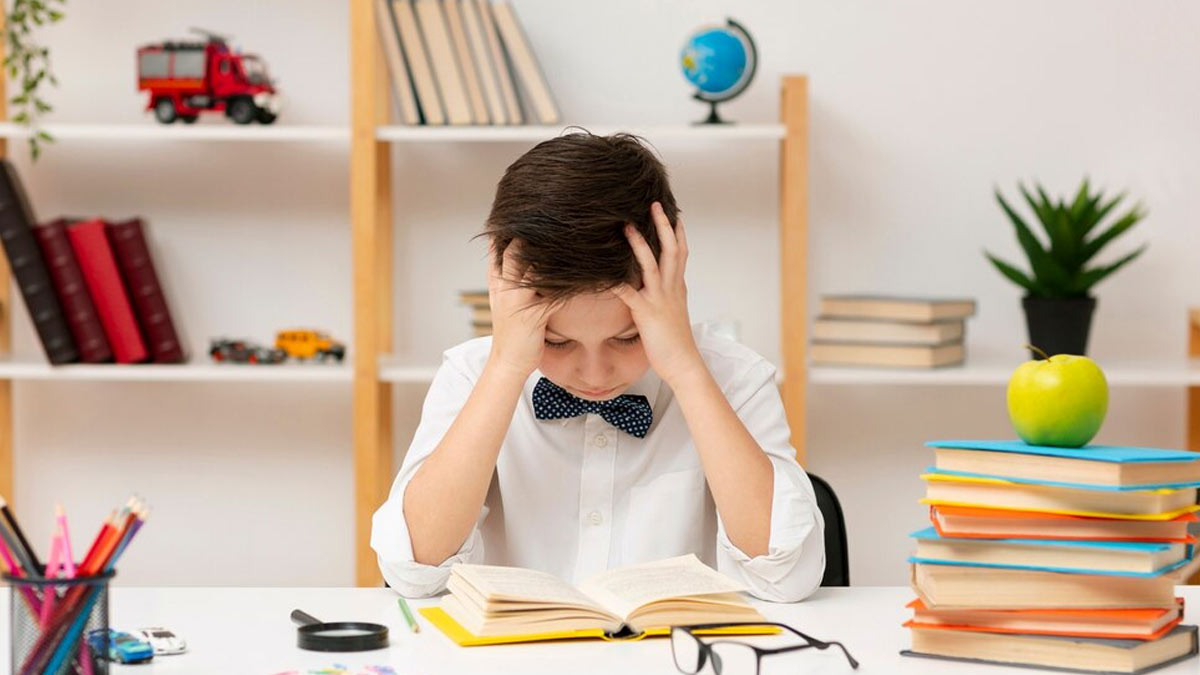
Children have the potential to be good listeners, yet they are often easily distracted. Various factors can affect their attention span, and in some children, a loss of focus may be a temporary issue. However, in certain cases, if distractions occur more frequently than usual, it may indicate a more serious underlying cause, which should be quickly identified and addressed.
Table of Content:-
In a recent interaction with the OnlyMyHealth team, Dr Sanjay Garg, Consultant - Mental Health and Behavioural Sciences at Fortis Hospital, Anandapur, delves into the multiple factors that can lead to frequent distractions in children, impacting their focus and concentration.
Children And Distractions: What Might Be The Cause?![]()
Distractions are common in children and for various internal and external factors. While internal factors might include developmental changes, fatigue, hunger, or emotional states such as stress or anxiety, children may also experience attention difficulties due to conditions like Attention Deficit Hyperactivity Disorder (ADHD), which affect their ability to stay focused. Let's take a look at these factors in detail:
ADHD: It is one of the most common causes of children having trouble focusing. It is a neuro-developmental disorder that is characterised by persistent symptoms of hyperactivity, impulsivity, and/or inattention.
Anxiety and stress: Anxiety and stress can hinder a child’s attention. The increase in anxiety and stress levels makes it difficult for the children to focus on a particular thing.
Nutrition or eating habits: Nutrition plays an important role in overall well-being and managing the energy levels in a child. A poor diet, skipping meals, and having unhealthy foods too often can affect energy levels, which may further impact focus.
Boredom: The area of interest of the child matters here. A child will struggle to focus if they are uninterested in a certain subject.
External factors, on the other hand, include environmental influences like overuse of screens, major life transitions like relocation or family changes, or a noisy or chaotic setting.
Also Read: Why Is ADHD Diagnosis More Difficult Among Young Girls?
ADHD Vs. Anxiety In Kids: How To Differentiate![]()
A comprehensive review of 588 studies involving over 30 lakh children and adolescents revealed that around 8% of them had ADHD, with boys being twice as likely to be diagnosed with the condition compared to girls.
Anxiety is also a common problem among children, which is often overlooked. Research indicates that the prevalence increased during the COVID-19 pandemic. According to a 2021 study published in the JAMA Network examining the mental health of children and adolescents during the COVID-19 pandemic, approximately 20.5% of young people experienced clinically significant anxiety—a substantial increase compared to pre-pandemic levels. The study also highlighted that anxiety rates were higher among older adolescents and girls.
Both ADHD and anxiety can lead to distractions and a shorter attention span. However, the two conditions are different and should be distinguished for better management.
Dr Garg says, “ADHD is a mental disorder that can cause excessive hyperactivity and impulsive conduct. Inattention is one of the major symptoms of ADHD. On the other hand, children's anxiety is deemed a condition if their concerns or fears persist for longer than six months.”
“Parents may differentiate between the two conditions by observing the symptoms in their children. While impulsivity, hyperactivity, and inattention form the major symptoms of ADHD, persistent fears or worries, restlessness, lack of sleep, physical symptoms like headaches, stomach aches, etc., and avoiding tasks or engagements form the symptoms of anxiety,” he adds.
However, the expert encourages parents to speak with a mental health professional at the earliest.
Also Read: ADHD In Adults: Doctor Shares Effective Tips To Manage It
Strategies To Improve Attention Span In Children![]()
![]()
The strategies parents can use to improve focus and reduce distractions for their children are:
- Make a dedicated study or activity space.
- Creating a routine for the child to follow daily.
- Restricting the use of technology.
- Minimisation of external distractions.
- Ensuring proper nutrition.
- Ensuring cordial relationships with the child.
- Offering motivation and rewards for better performance.
- Consistent involvement and assistance to the child.
According to Dr Garg, it is advisable to consult a mental health professional if a child's everyday life is being seriously impacted by signs and symptoms of anxiety, stress, ADHD, or another behavioural issue that have persisted for an extended period of time.
Remember, frequent distractions and lack of focus in children are not something that should be ignored. Instead, parents should take proactive steps to identify the cause and seek professional help.
Also watch this video
How we keep this article up to date:
We work with experts and keep a close eye on the latest in health and wellness. Whenever there is a new research or helpful information, we update our articles with accurate and useful advice.
Current Version


